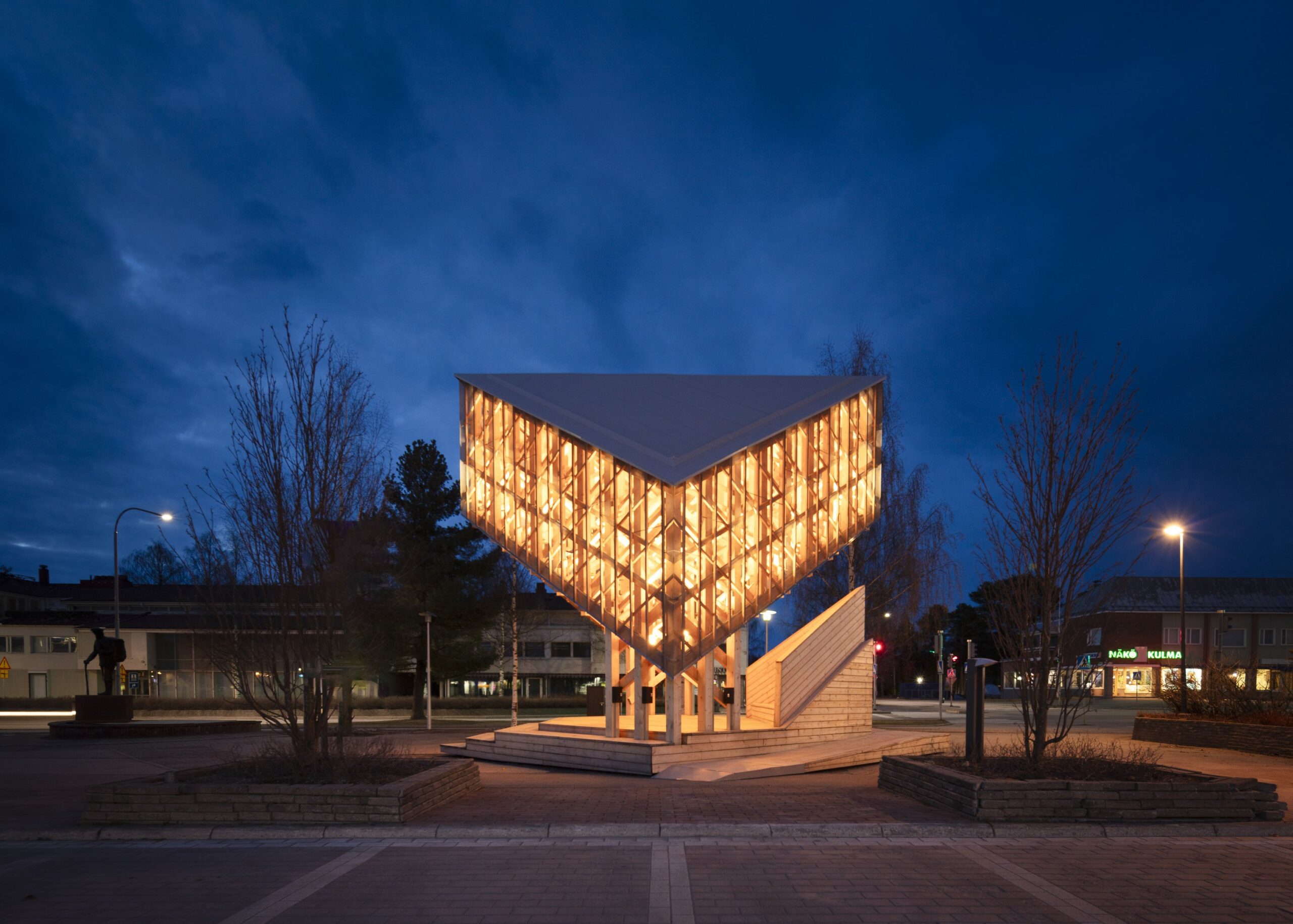Traditional systems offer "model of progress" for African cities says Tosin Oshinowo


Nigerian architect Tosin Oshinowo's latest research project exploring Lagos' markets was unveiled at this year's Venice Architecture Biennale. In this interview, she explains how these markets pose solutions for urban development in Africa.
While current models of urban development may work in the Western world, they do not take into consideration the specific economic and environmental parameters of Lagos and other African cities, says Oshinowo.
Instead, Oshinowo, who is the founder of Lagos-based Oshinowo Studio, argues that African cities should look inwards rather than to the West for viable and context-specific solutions to urban development.

"One of the biggest challenges that the African continent has is that the model of progress that we are trying to emulate is one that we cannot economically sustain," Oshinowo said.
"A lot of the supposed types of developments that do come with modernity for commercial activity [such as] shopping malls [and] retail centres have not really worked in West Africa."
"These situations are very different to the conditions that have allowed European or Global North cities to develop," Oshinowo continued.
"Informal" markets offer valuable knowledge
As an alternative, Oshinowo suggests looking to existing or traditional models that have proved to be consistent and sustainable sources of economic and social activity.
Operating in a traditional, bottom-up format, Lagos markets are a prime example of such a model that could be applied to urban development in Lagos, according to Oshinowo.

However, as they are often tagged as "informal" spaces in comparison to Western models of development, these markets tend to get overlooked as viable sources of knowledge.
"This idea of a bottom-up structure that actually comes from the tradition and actually what we, in modern society, call informal," Oshinowo said.
"Where we have these bottom-up structures, or these traditions that have allowed us to exist in modernity, we should be observing, mapping and understanding these as a proposed model of progress because they are not just sustainable, as they have been since the 1980s, but they're the most realistic way that we can think about moving forward," she added.
"We need to think about the city differently"
This idea culminates in Oshinowo's ongoing research project, which highlights the sustainable and circular approach to consumerism present across Lagos' markets.
The project by Oshinowo Studio was exhibited at this year's Venice Architecture Biennale, under curator Carlo Ratti's theme of Intelligens Natural Artificial Collective, where it was awarded a special mention at the Golden Lions award ceremony.
Titled Alternative Urbanism: The Self-Organized Markets of Lagos, the exhibition documents three specialist Lagos markets through film, photography and data.

The title Alternative Urbanism, Oshinowo explains, refers to this idea that existing or traditional approaches offer alternative and sustainable ways to address modern-day urban challenges.
"Alternative urbanism is really a suggestion that we need to think about the city differently. We need to think about city makeup in an alternative way," she said.
"What I'm proposing with this exhibition is looking at an urban condition that comes from tradition," she continued. "How do we use what we have to be able to exist and to thrive in modernity?"
"We need to understand the systems that already exist here and be able to harness them to make them more efficient."
Specialised markets counter a "hyper-consumerist reality"
As part of the research, Oshinowo Studio documented the activities occurring across three Lagos markets: the Computer Village market, the Katangua Cloth market and Ladipo Automobile market.
These markets essentially operate as factories – repurposing waste products or "source materials" from the Global North into goods in a circular approach that should be more widely adopted, says Oshinowo.
"Through a process of adaptation in these markets, they're able to take source materials [and] reappropriate them through a factory system to become desirable products," Oshinowo said.

"So in a hyper-consumerist reality that we live in today, where redundancy is now built into products, what actually happens at the other end of capitalism in a lot of African cities is this re-adaptation," she continued.
"This then questions the model of capitalism that the world is living in, where redundancy of two years is built into so many products."
"It shows that there is a possibility to think about the city differently from the narrative that we see in the Global North," she added.
"We have systems that work"
This circular approach also has advantages in the context of a global climate crisis, says Oshinowo.
In 2023, Nigeria – Africa's most populous country – accounted for 0.3 per cent of global carbon emissions, while the African continent made up just 3.7 per cent, according to the International Energy Agency.
With its comparatively minimal contribution to current climate challenges, Africa, which is currently home to 18 per cent of the world's population, has a role to play on a global scale, says Oshinowo.

"We are finding interesting ways of dealing with some of our very urgent global challenges," Oshinowo said. "What happens on the continent is equally important as what happens anywhere else," she continued.
"We do have something of value to contribute because we are existing, we are contributing very little carbon, and we have systems that work."
Call for solutions "homegrown from Africa"
Though her research focuses on Lagos and other African cities, Oshinowo explains that this tradition-oriented approach may also encourage more radical approaches to cities beyond the continent.
"It's not a direct solution that can be transferred across because the parameters are different, but I do think that there are possibilities of applicability in other regions," Oshinowo said.
"If other locations start to think about the city differently, I think that we'd be much better positioned to start to propose solutions."
First, though, Oshinowo hopes that her research will encourage practitioners in Lagos and other African cities to build on systems that already exist on the continent for tailored solutions.
"This research is really at the beginning of what will be an expansive mapping exercise, but I do hope that what comes out of this is an understanding that the solution that we need for Africa will be homegrown from Africa," she concluded.
The photography is by Paul Raftery unless otherwise stated.
The post Traditional systems offer "model of progress" for African cities says Tosin Oshinowo appeared first on Dezeen.




















































